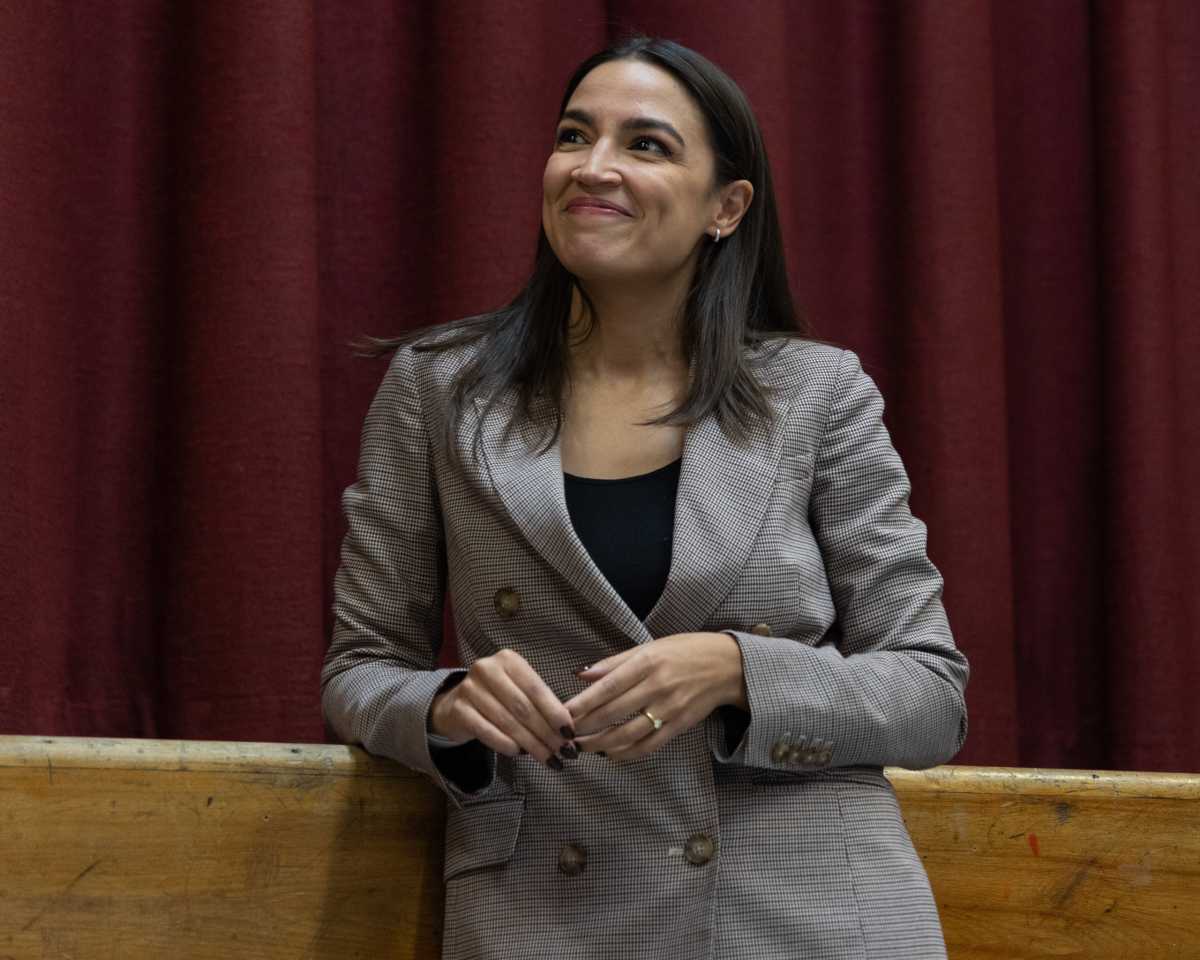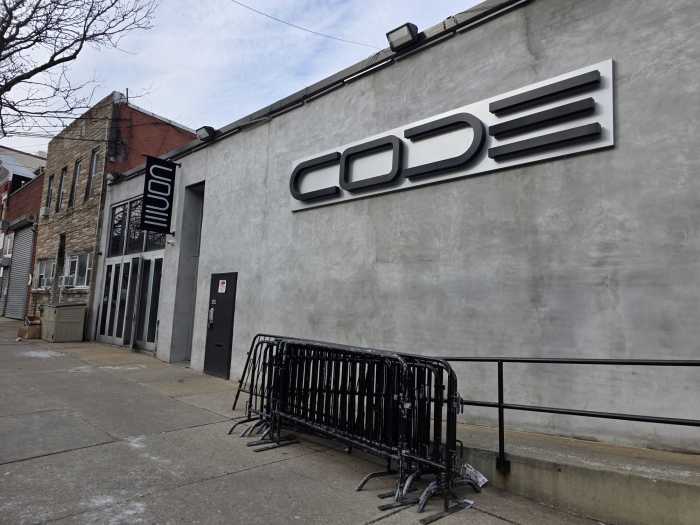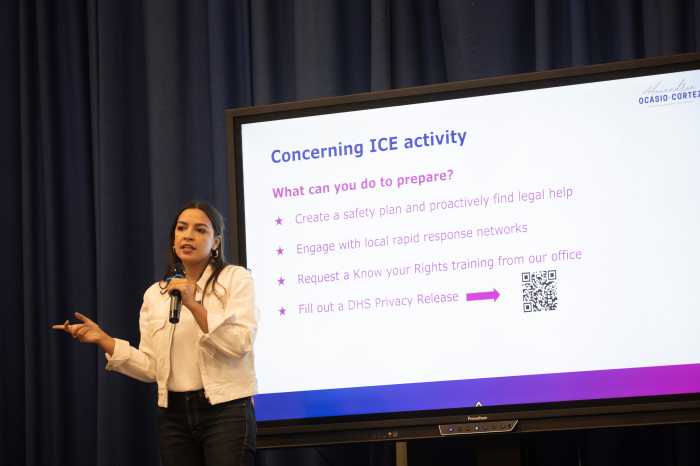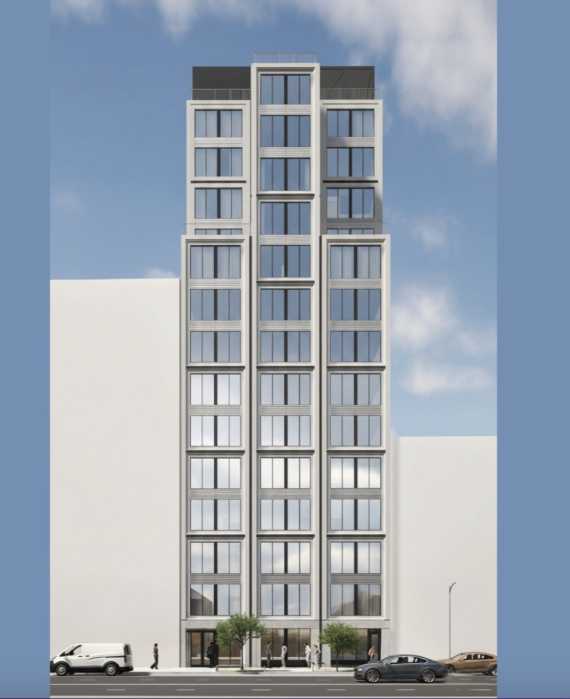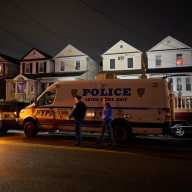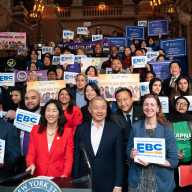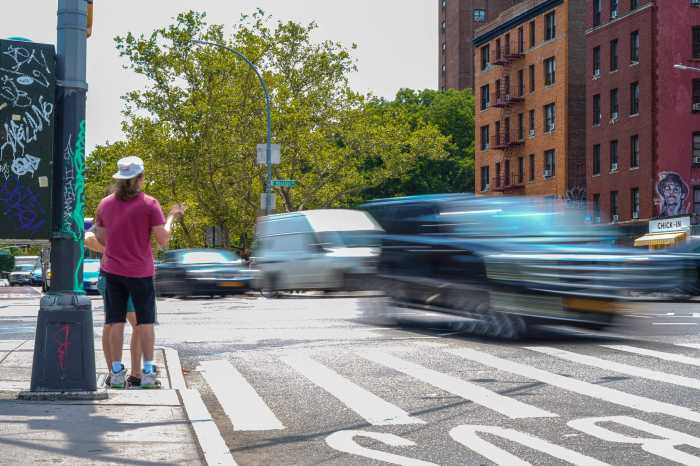With the neighborhood getting redistricted into Rep. Alexandria Ocasio-Cortez’s 14th Congressional District, the congresswoman held a town forum Oct. 19 in Astoria to hear from her new constituents and try to answer questions they had.
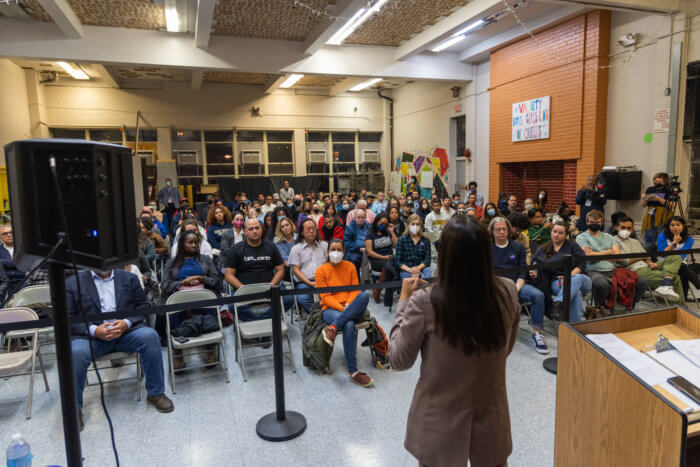
Some of the main topics of discussion at the forum — held at Astoria’s Boys and Girls Club of Queens — had to do with social housing and environmentally friendly energy. These topics of discussion were prompted by concerns on the matter expressed by members of the community.
One thing Ocasio-Cortez touted as a big potential factor in improving public housing was her campaign to repeal the Faircloth Amendment, passed by the House of Representatives last year. The Faircloth Amendment states that construction or operation of new public housing units can’t be funded by the United States Department of Housing and Urban Development with capital or operating funds if it would result in a net increase in the number of units the Public Housing Agency owned, assisted or operated. Since its passage in 1998, the bill has prevented public housing from being built.
“The Faircloth Amendment has restricted the addition of new public housing stock in the United States,” Ocasio-Cortez said. “This has helped contribute in part to our current housing crisis. We need to be constructing, investing in, renewing and storing public housing.”
According to Ocasio-Cortez, the repealing of the Faircloth Amendment was initially included in the Build Back Better Act, but was later taken out as a means of getting enough votes to pass it. Still, Ocasio-Cortez is hopeful that the Senate will also approve of the amendment’s repeal, though she feels the chances of that happening would be better if Democrats end up taking some more Senate seats in the upcoming midterm elections.
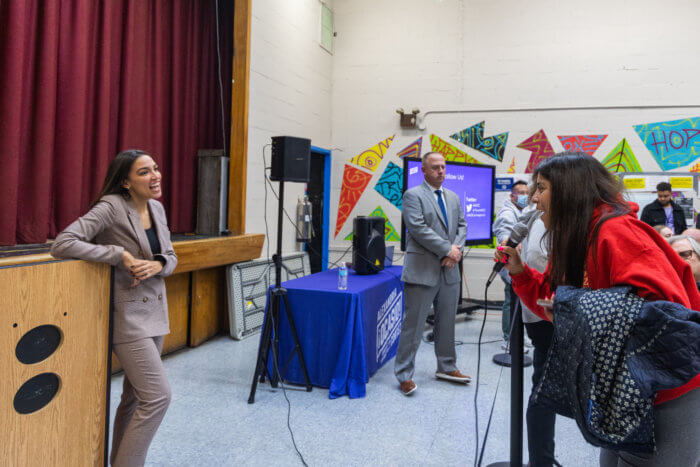
Environmental injustice and intersection construction were concerns expressed by Astoria homeowners at the forum. Ocasio-Cortez noted that critical energy failures have become too common an occurrence each winter. She believes many of these failures are due to antiquated oil or gas-based systems as well as steam systems that aren’t kept up to date. She encourages public houses to switch to renewable energy resources like installing solar panels in order to better combat this. She also noted that making investments like this on local levels can help create local jobs for the installation of these resources.
Ocasio-Cortez brought up Section 3 of the Housing and Urban Development Act as a way of ensuring this work gets done. This section provides both economic and employment opportunities for people with low income. Preferential contracting for these retrofits would be given to the public housing residents, ensuring local jobs are created. Additionally, Ocasio-Cortez noted the importance of cleaning up environmental waste in the community.
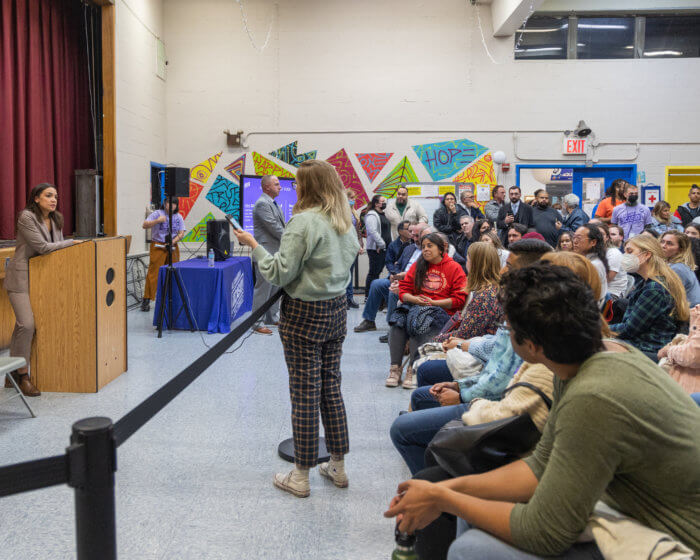
Another topic discussed was ensuring local small businesses are benefiting from Paycheck Protection Program (PPP) loans. She recalled that once the bill granting this was passed, she hosted a PPP information session for small businesses. This allowed small businesses in her district to have access to the program’s information. While she said this allowed for some to enroll in the program early, she still felt there weren’t enough small businesses doing it.
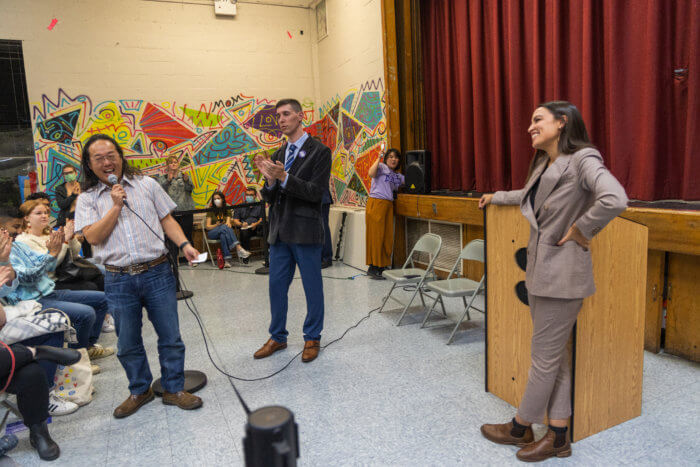
“When we reauthorized the PPP Program, we worked and organized and make sure that the money would go to women, minority-owned and small businesses,” Ocasio-Cortez said. “We still need to expand a lot of these things.”
Ocasio-Cortez revealed she has been in the process of creating a social housing initiative, which would operate independent of the for-profit market. Forms of housing for use would be prioritized over those for profit. Among the types of housing she listed that could be part of this initiative were nonprofit housing, public housing and cooperative housing. She believes this can contribute in a big way to solving the housing crisis in New York City.
One thing Ocasio-Cortez has high hopes for is developing more community land trusts. These allow people to own a home on a land that is publicly owned. The land is leased to people under a long-term ground lease. The homes they then purchase are at prices below market rates. This would allow for housing to stay affordable.

